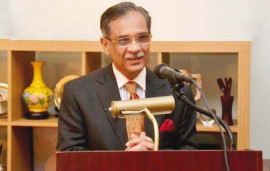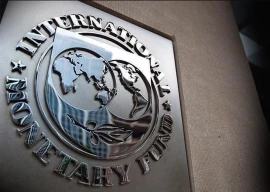
This was stated by Pakistan Vanaspati Manufacturers Association (PVMA) Chairman Atif Ikram Sheikh during his first meeting with stakeholders after his election as the association’s head.

“The domestic production of edible oil is increasing at a snail’s pace which does not commensurate with the escalating demand,” he said, adding that the industry should deliver better products on affordable rates and make Pakistan self-sufficient in edible oil production.
Though Pakistan is an agrarian country, it is not producing sufficient edible oil to meet its domestic requirements and substantial amount of foreign exchange is spent on the import of soya bean and palm oil every year, he informed.
Sheikh said the country’s major source of edible oil is cottonseed, rapeseed, sunflower and canola. Oil content in cottonseed is 10 to 12 per cent while it is 32 per cent in rapeseed, and 37 per cent in sunflower. Although cotton production in the country has increased substantially over the last 50 years, the availability of cottonseed oil is far below the domestic requirement of the growing population, he informed further.
Sheikh said Pakistan imported 2.2 million ton edible oil in 2013, mostly from Malaysia and Indonesia, adding that 65 per cent of the domestic demand is met through imported oil.
The total demand for edible oil in the Pakistan currently stands at around 3.2 million ton a year. About 1.44 million ton palm oil products worth $1.34 billion are imported from Malaysia, making Pakistan the fifth largest exports destination for the Malaysian palm oil. “There are ample opportunities for the private sectors of the three countries to synergise, due to Pakistan’s strategic geographical location,” said Sheikh.
He also urged more Indonesian and Malaysian companies to collaborate with the Pakistani companies in developing other areas in the edible oil trade.
Published in The Express Tribune, September 22nd, 2014.


1725543901-0/Tribune-Pic-(5)1725543901-0-165x106.webp)







1725535258-0/Untitled-design-(48)1725535258-0-270x192.webp)


1725434334-0/Untitled-design-(35)1725434334-0-270x192.webp)









COMMENTS
Comments are moderated and generally will be posted if they are on-topic and not abusive.
For more information, please see our Comments FAQ